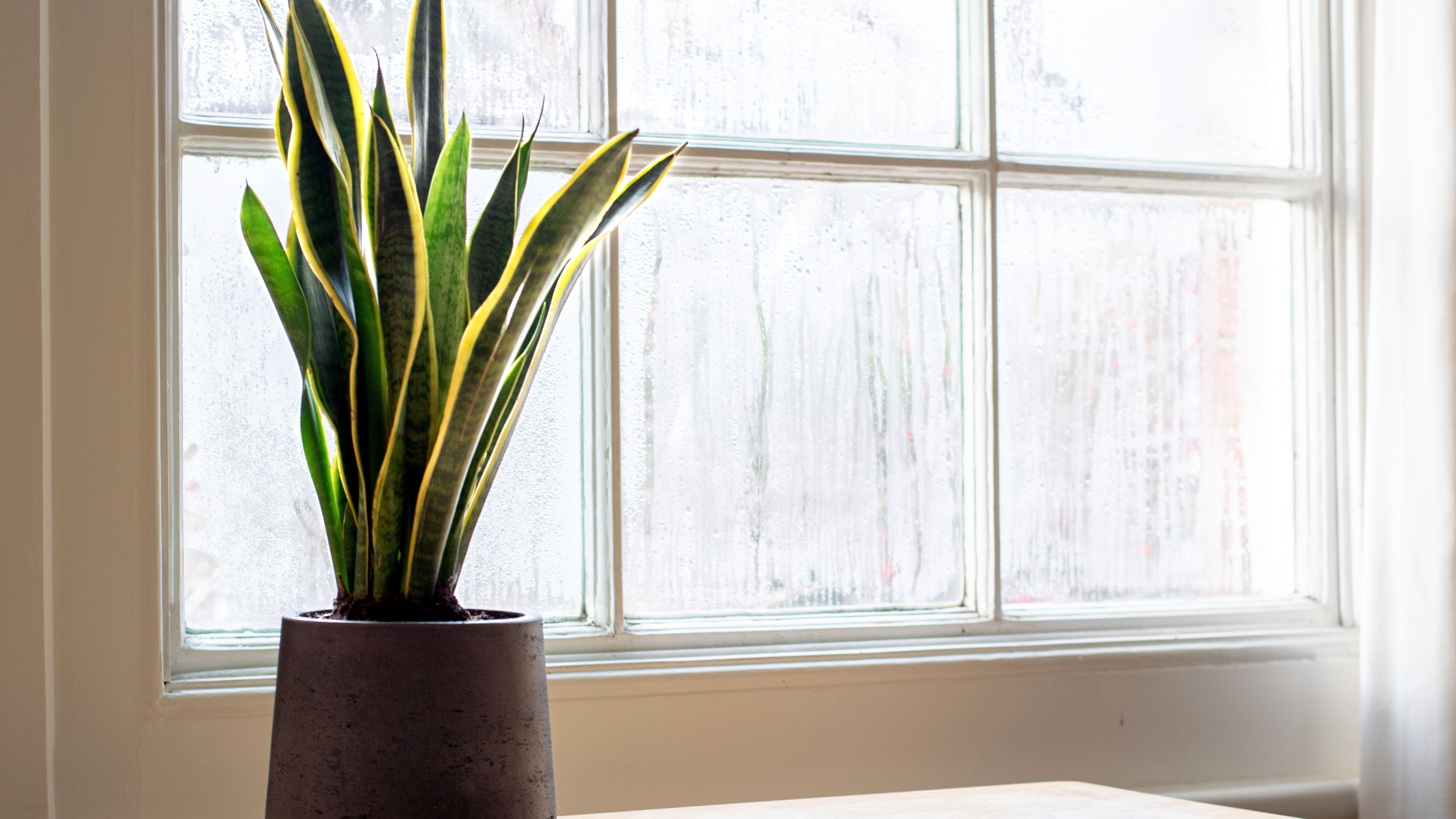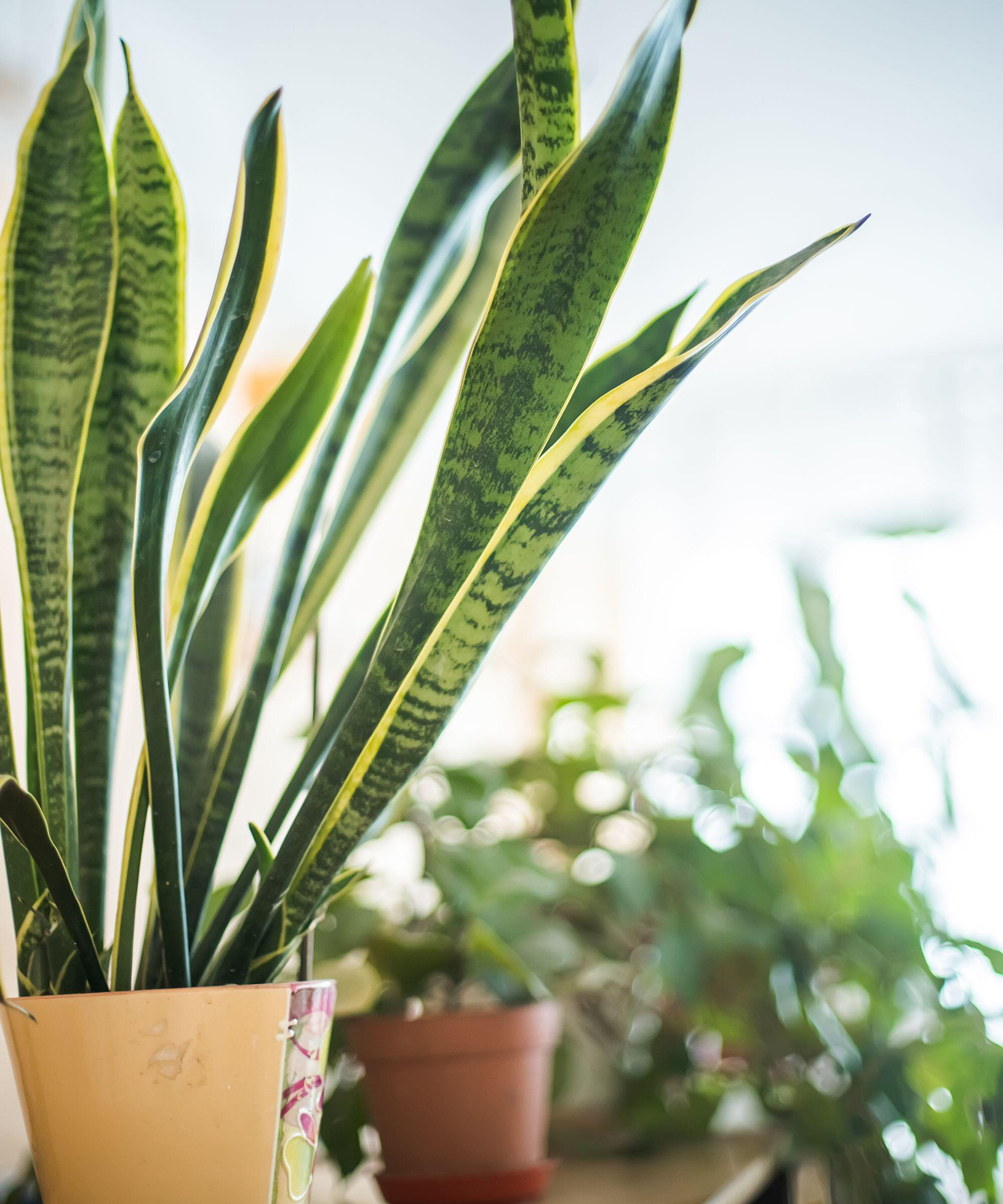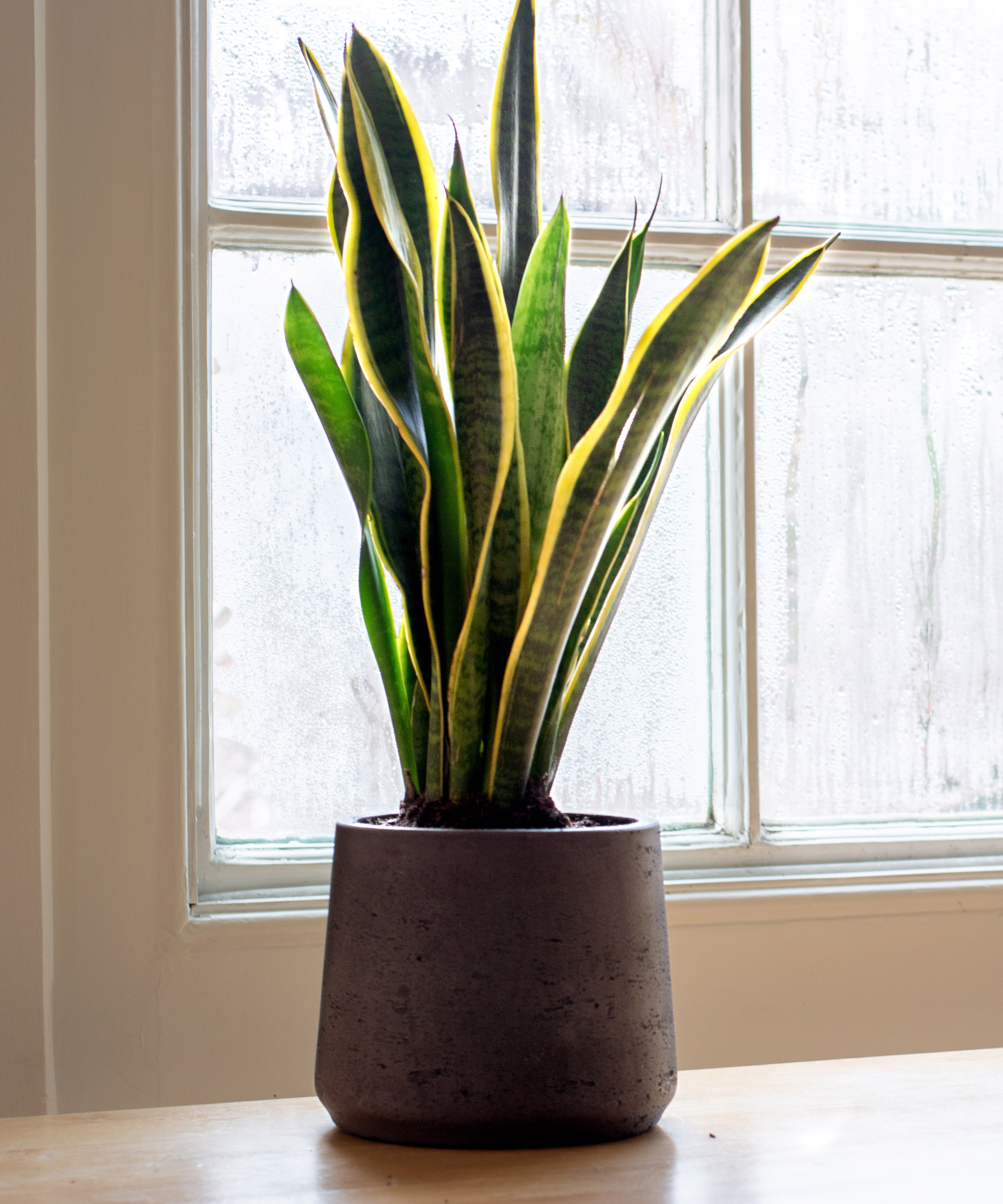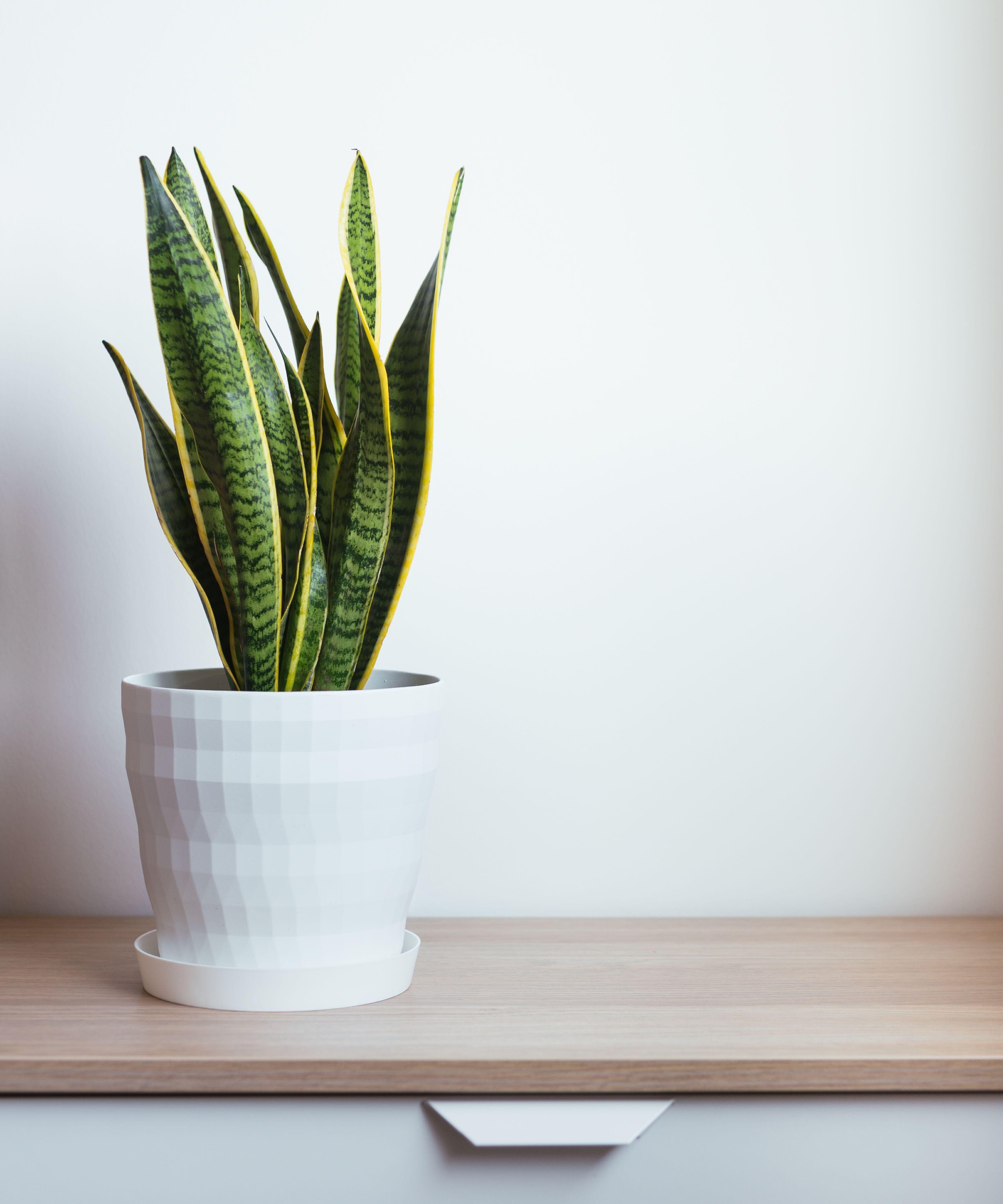How to propagate a snake plant – expert steps for a long-lasting statement plant
This good-looking, air-purifying plant is a modern home staple – here's how to enjoy its benefits for longer


Design expertise in your inbox – from inspiring decorating ideas and beautiful celebrity homes to practical gardening advice and shopping round-ups.
You are now subscribed
Your newsletter sign-up was successful
Want to add more newsletters?

Twice a week
Homes&Gardens
The ultimate interior design resource from the world's leading experts - discover inspiring decorating ideas, color scheming know-how, garden inspiration and shopping expertise.

Once a week
In The Loop from Next In Design
Members of the Next in Design Circle will receive In the Loop, our weekly email filled with trade news, names to know and spotlight moments. Together we’re building a brighter design future.

Twice a week
Cucina
Whether you’re passionate about hosting exquisite dinners, experimenting with culinary trends, or perfecting your kitchen's design with timeless elegance and innovative functionality, this newsletter is here to inspire
Wondering how to propagate a snake plant? With its striking shape and air-purifying qualities – the appeal behind this green staple is clear. So, it is perhaps only natural that you will want to extend its life further. And propagating is the easiest way to do so.
The snake plant (otherwise known as Dracaena trifasciata) is one of the best bedroom plants you can choose – most primarily for its ability to remove toxic pollutants in the air, even overnight. It's also one of the most popular low-maintenance indoor plants available – and the propagating process is equally as seamless.
This is how to take plant cuttings from your snake plant – so it continues to benefit your home for longer.
How to propagate a snake plant
Snake plants are some of the easiest houseplants to grow from cuttings. There are two main methods to propagate a snake plant – the first is by using water and the second by soil. Though, whichever way you choose, the start of the method remains the same.
Vladan Nikolic, also known as Mr. Houseplant, explains that each propagation begins by taking a pair of pruning shears or scissors and sterilizing them with rubbing alcohol. You then prune a snake plant leaf, cutting as low as possible before leaving to wound to dry for a few days. From here, you can follow the soil or water propagation method.

Water propagation steps
To begin, you should put your cutting in water before placing it on your brightest window (or under a grow light).
'Replace the water at least once a week, or more often if it gets dirty sooner. This will provide fresh, clean water with oxygen and remove anaerobic bacteria from the old water,' Vladan says. After the cutting has grown around 2 inches of roots, you can pot it in soil.
Design expertise in your inbox – from inspiring decorating ideas and beautiful celebrity homes to practical gardening advice and shopping round-ups.
'If you want to speed up propagation and increase the chances of success, use an air pump, a heat mat, and a grow light [such as this one from Amazon],' the expert says.

Soil propagation steps
Alternatively, you can propagate a snake plant using soil.
'Create a well-draining, porous potting mix by mixing one part of any potting mix and one part of perlite, [then] fill up a small pot with soil,' the expert says. You should then pot the cutting and, like the water method, place it on a bright window or under a grow light.
Once the soil has dried out, you should water your plant (and ensure it reaches the bottom of the pot). After around two months, you should see new shoots from your cutting. As it continues to grow, be mindful of how often to water your snake plant – too much water can lead to yellowing of the leaves and root rot.
'Instead of propagating a whole leaf, you can also cut a single leaf into several cuttings and produce several plants from a single leaf,' Vladan adds. However, it is important to remember which side of each leaf cutting goes up and which side goes does. 'If you turn them upside down, they will not be able to propagate,' he says.

Is it better to propagate a snake plant in water or soil?
It doesn't make a difference whether you use soil or water propagation for snake plants, so you should choose the method that seems the most convenient for you.
'Some people will suggest soil, others water. I encourage people to try water propagation first, as it's easier, but the truth is snake plants can be propagated either way successfully,' Vladan says. 'I encourage people to try both and see what works better for them. If you don't have success with water propagation, try soil and vice versa.'
While your chosen method impacts the health of your best indoor plants, your environment is the most important factor to consider.
'What determines the propagation speed and success isn't the propagation medium but the environment the plant is in,' he adds. This includes the light levels, the temperature of the propagation medium, and the amount of oxygen for the roots.
Can you propagate snake plant in water?
Yes, the water propagating method is favored by experts like Vladan, who suggests it is even slightly easier than soil. However, as Brody Hall, Certified Horticulturist and co-founder of The Indoor Nursery, explains, this method does come with some maintenance.
'Snake Plants cuttings can simply be placed in a container filled with water, and they will produce roots in a short period. Although to grow straight roots that aren't hindered by the base of a container, the avocado seed germination method can be used,' he says.
To do this, you should take a sharp knife to sever away your healthy-looking cutting from the base of the mother plant before placing the cuttings into a small glass. 'Lift the cutting about 1.5-2 inches from the bottom of the glass and, using four toothpicks (two on each side), suspend the cutting from touching the bottom of the glass,' Brody says.
You should only push the toothpicks deep enough into the flesh to hold the cutting in place – not all the way through the cutting. 'Be sure to change out the water once to twice a week,' he adds.
Which method will you choose?

Megan is the Head of Celebrity Style News at Homes & Gardens, where she leads the celebrity/ news team. She has a history in interior design, travel, and news journalism, having lived and worked in New York, Paris, and, currently, London. Megan has bylines in Livingetc, The Telegraph, and IRK Magazine, and has interviewed the likes of Drew Barrymore, Ayesha Curry, Michelle Keegan, and Tan France, among others. She lives in a London apartment with her antique typewriter and an eclectic espresso cup collection, and dreams of a Kelly Wearstler-designed home.